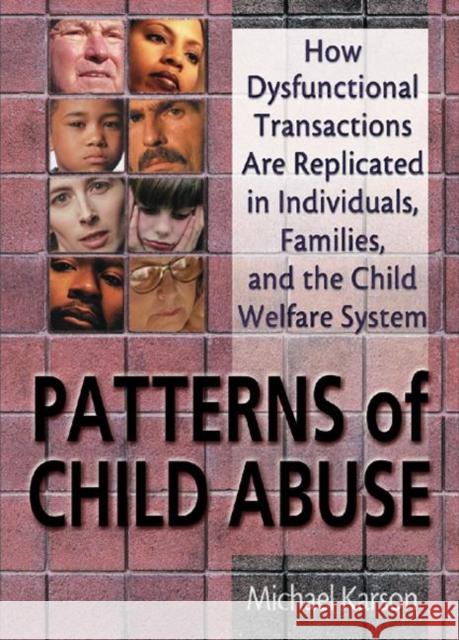Patterns of Child Abuse: How Dysfunctional Transactions Are Replicated in Individuals, Families, and the Child Welfare System » książka
Patterns of Child Abuse: How Dysfunctional Transactions Are Replicated in Individuals, Families, and the Child Welfare System
ISBN-13: 9780789007391 / Angielski / Twarda / 2001 / 250 str.
Patterns of Child Abuse: How Dysfunctional Transactions Are Replicated in Individuals, Families, and the Child Welfare System
ISBN-13: 9780789007391 / Angielski / Twarda / 2001 / 250 str.
(netto: 676,35 VAT: 5%)
Najniższa cena z 30 dni: 653,11
ok. 22 dni roboczych.
Darmowa dostawa!
Interpret the hidden meaning of family roles to help children at risk Because dysfunctional patterns are closed systems that serve a secret purpose, they are almost impossible to change from the outside. Patterns of Child Abuse helps you recognize the purpose behind the patterns and offers successful strategies for entering the pattern in order to help family members without joining it and becoming part of the dysfunction. Patterns of Child Abuse identifies the most common, most problematic patterns and explores their hidden meanings. Case studies and theoretical discussions demonstrate the ways family patterns are replicated in a child's psyche and the ways the grown-up child replicates the familiar family pattern, forcing the world to bend to the story within. Synthesizing systems theory, behaviorism, and psychoanalysis, Patterns of Child Abuse offers powerful insights as well as practical strategies for dealing with such complex issues as: how to comfort an abused child who cannot bear to be touched why abused children idealize their battering or neglectful parent how borderline personality organization affects individuals and their families handling the sexually powerful teenage girl, the disruptive boy, and the mother of the sexual abuse victim how family patterns operate in therapeutic context why therapists and social workers may encounter conflicts in child welfare cases when and how paradoxical interventions can work Well-written and insightful, Patterns of Child Abuse conveys a sound theoretical model and a sophisticated approach to the psychology of individuals and families for the child welfare professional.











